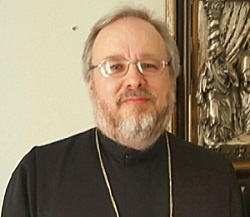The suicide bomb attack in Manchester on Monday, May 22, was the worst terrorist atrocity to strike the UK since the London multiple bomb attack in 2005. A terrorist detonated a suitcase bomb at the Manchester Arena after an Ariana Grande pop concert. A total of 22 people have died, including an 8-year-old girl, and 59 badly injured people were taken to hospital. The agents were the same in each case: extremist Muslim followers of a violent expression of Islam.
Almost immediately, as the shocked population of Manchester sought to come to terms with what happened, there were those who wanted to find excuses to mitigate the act of terrorism. Some have blamed terrorist attacks on poverty, or the newest cause, “economic inequality.”
Thomas Piketty, the foremost proponent of wealth redistribution today, has said that “terrorism feeds on the powder keg of Middle Eastern inequality, that we [the West] have largely contributed to creating.”
But the Manchester bomber is not an underprivileged victim of inequality. Salman Abedi contacted his mother just before his suicide attack. She is a university graduate from Tripoli University, who is reported to have graduated top of her class, and a nuclear scientist in Libya. He himself was a university undergraduate on a Business and Management Degree course, and completed his first year of studies. He had every opportunity to make a successful life for himself in the UK. He was not one of those with few prospects and no encouragement to succeed who have recourse to a very traditional form of Islam. On the contrary, his family were well-educated, and so was he.
What brought about his descent into extremism? It was not, it would seem, any sense of being excluded from British society. A school friend says, “He was an outgoing fun guy, but since he went to Libya in 2011 he came back a different guy.”
This holds true for a multitude of terrorists across varying societies, both analytically and anecdotally.
In the case of Khalid Masood, the Westminster terrorist, a friend describes him as a popular pupil who "liked to party.” He was also a keen schoolboy footballer. Nor was he in the lowest social category. He was brought up with his brothers, one of whom is a successful businessman, in Rye and Tunbridge Wells and lived in a substantial home.
In 2015, Mohammed Ammer Ali attempted to produce enough ricin to kill 1,400 people. His family had its own newsagent business, and he himself was a software engineer. Also in 2015, Mohammed Rehman and his wife, Sana Ahmed Khan, were prevented from exploding a bomb in the Westfield Shopping Centre. Khan is a university graduate, with a degree in English.
Evidence is increasingly demonstrating that poverty and economic inequality, though certainly drivers of social unrest, are not the causes of terrorism.
There is also the case of the three teenage girls - Kadiza Sultana, Amira Abase, and Shamima Begum - among 56 people who have traveled to Syria to support ISIS. They attended the Bethnal Green Academy school and were described as "straight-A students."
Scholarly studies show that wealth inequality is not creating this new generation of terrorists. In a paper from the National Bureau of Economic Research, MIT Professor Alberto Abadie notes that recent empirical studies have upset the view that poverty creates terrorism. Speaking of his own detailed research he concludes, “Using a new data set on terrorist risk worldwide, I fail to find a significant association between terrorism and economic variables such as income once the effect of other country characteristics is taken into account.” Christine Fair and Bryan Shepherd, after analysing the data of the Pew Global Attitudes data, found that, "The very poor are less, not more, likely to support such [terrorist] attacks." Evidence is increasingly demonstrating that poverty and economic inequality, though certainly drivers of social unrest, are not the causes of terrorism.
Why would a young man, born in the UK, and with all the benefits and freedoms which British citizenship provided, come to believe that the major threat to civilians and children in the Middle East was from the Western military? In 2016, a detailed survey of the views of Muslims in the UK was undertaken to support a documentary on Channel 4 presented by Trevor Phillips, previously the chairman of the Equality and Human Rights Commission. The answer seems to be a simple one: personal acceptance of a radicalized form of Islam.
In all, 23 percent wanted to see Shari’a law established in the UK. Another 32 percent refused to condemn those who used violence to respond to those who appeared to mock Mohammed. And 21 percent refused to condemn the practice of stoning those who had committed adultery. Four percent sympathised with those who used terrorism, and with those who took part in suicide bombings. More than one-third (34 percent) would report somebody they knew was getting involved with terrorist groups in Syria.
The pro-terror demographic may, in some case, seem like a small slice of the sum total. But with a Muslim population of 2.7 million in the UK, if even four percent of Muslims in Britain are sympathetic to suicide bombers, this means that more than 100,000 people are sympathetic to what happened on Monday, and perhaps 1.5 million people would not report someone they saw slipping into the influence of terrorist groups.
There are other disturbing statistics in this survey. Those who were born in the UK believe that it is a worse place to practice Islam than those who were born elsewhere. Four percent of Muslims born in the UK, and with all the benefits of British citizenship, think that the UK is bad for Muslims; conversely, only one percent of Muslims not born in the UK think that Britain is bad for Muslims.
What does this mean? It would seem to indicate that there are those Muslims who are disassociated with life in wider British society. These tend to be from the lower social categories – but there are also Muslims who enjoy the freedoms of British society and wish to take advantage of them to press on towards creating a more Islamic society. A total of 93 percent of those in the highest social category believe that the UK is good for Muslims. But these same well-established, and well-educated Muslims also hide a significant minority who support terrorism and suicide bombing.
A disturbingly high proportion of Muslims in the UK had views which were not compatible with British democratic and liberal ideals.
There may well be a hostility to modern Western society among some Muslims in the lowest social categories, but this does not seem to result in planning and perpetrating terrorism. Many of those convicted of terrorism in the UK, or traveling overseas to support and commit terrorist offences seem rather to have had the opportunity of a good education, and to have gained degrees, or have well-established family backgrounds.
Trevor Phillips’ survey discovered that a disturbingly high proportion of Muslims in the UK had views which were not compatible with British democratic and liberal ideals. The results led him to say:
The integration of Britain’s Muslims will probably be the hardest task we’ve ever faced. It will require the abandonment of the milk-and-water multiculturalism still so beloved of many, and the adoption of a far more muscular approach to integration.
Something else drives these relatively privileged Muslims to act as they do. It is not enough to blame their social circumstances in Britain. They are part of the small minority who enjoy living in the UK, and benefit from the freedoms our democratic and liberal society offers, but find themselves supporting violence and extremism nonetheless. We must look elsewhere, and within the Muslim community itself, to discover why they are radicalised.




